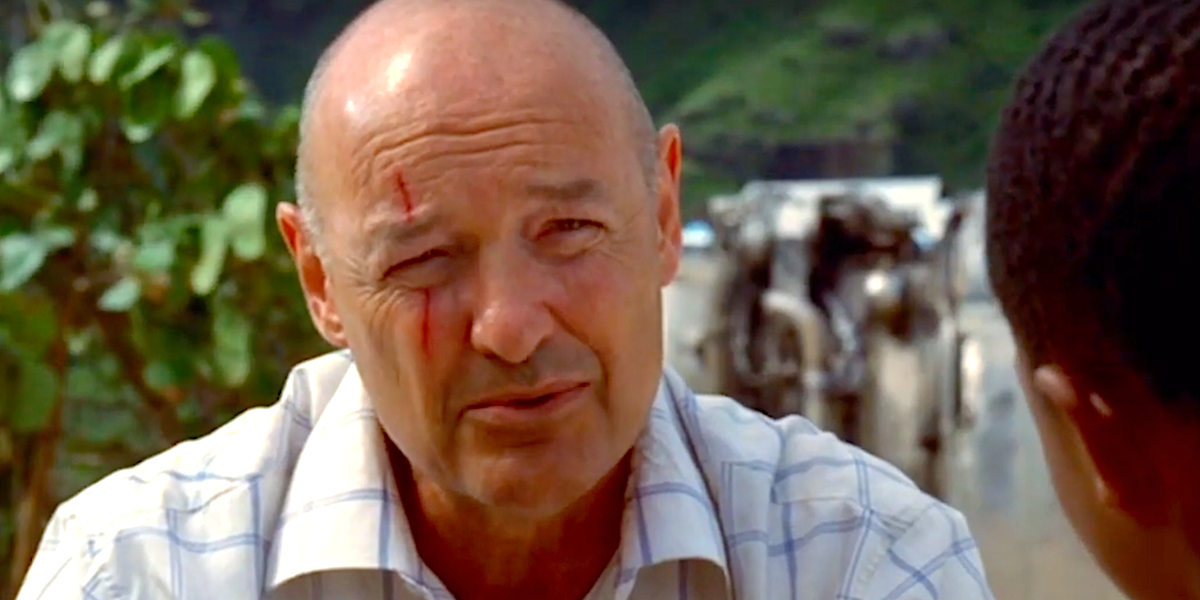How Lost Was Inspired By Watchmen, According To Damon Lindelof

In taking on the audacious job of crafting a sequelized version of Alan Moore and Dave Gibbons' fantastic Watchmen, Damon Lindelof hasn't played down the fact that his initial claim to fame, the mystery mega-hit Lost, took huge inspirations from the tightly wound comic books. Thankfully, Lindelof is finally able to start talking a little more about his take on Watchmen, controversial as it may be, now that HBO has revealed the new drama's October premiere date.
Of course, any conversation with Damon Lindelof has a good-to-great chance of broaching the subject of Lost at least once, and he recently revealed three big ways that his former TV sensation took cues from Watchmen's pages. In his words:
First, the idea of nonlinear storytelling. Then, in [the comics], there is Doctor Manhattan, who experiences time all at once. The idea of the island moving through time was hatched out of Watchmen. Also, the Lost episodic construct of [focusing on one character's story came] from the Watchmen model of each issue focusing on one character.
While John Locke didn't wear a constantly changing mask that reflected his temperament, and the Island's past generations didn't feature any vigilante team-ups, some of Lost's core conceits were indeed drafted from Alan Moore and Dave Gibbons' Watchmen. For one, the somewhat signature way Lost rippled back and forth through its timeline was directly inspired by Watchmen's innate ability to connect the past and present through key moments and visuals. Of course, Lost also went the extra step to give the term "flash-sideways" prominence in the pop culture lexicon.
Damon Lindelof also speaks to the idea that Lost's island was a non-sentient (or perhaps very sentient) vessel moving through all of time at once was inspired by the all-encompassing nature of Doctor Manhattan, the big blue being formerly known as nuclear physicist Jonathan Osterman. Like Doctor Manhattan, the island also seemed curiously impervious at times to the plights and fancies of human beings. Not that the Island could just pop off to Mars willy nilly.
Osterman repaired watches before turning into an amoral super-entity, allowing Watchmen to utilize lots of gears and mechanical visuals in its artwork. I don't think it would be outside the boundaries of the imagination that those aesthetics also played into the mechanics of Lost's Island itself. Such as the frozen donkey wheel that's responsible for sending the Island along skipping through time.
One of the biggest ways that Lost won fans over in its early seasons was how it brought a centralized focus to characters and situations on an episodic basis. This allowed audiences to get to know Matthew Fox's Jack, Evangeline Lilly's Kate, Josh Holloway's Sawyer and all the rest with ease, as fans learned big chunks of certain characters' stories on a weekly basis. And like Watchmen, Lost didn't follow traditional television tropes by giving the bulk of episodic runtimes to just protagonists.
Watchmen dedicated issues to Rorschach, Doctor Manhattan and Ozymandias, despite the fact that none of those characters would be considered a true hero by any stretch. They all have their redeeming values in how they wish the human race would handle itself, but they go about it in ways that strikes fear and/or death into others, which is not exactly how Superman and DC's more optimistic warriors opt to solve problems.
Your Daily Blend of Entertainment News
Similarly, Lost wouldn't have been able to offer some of the answers that it did without being able to focus episodes on Michael Emerson's Ben Linus and the more mysterious characters that got introduced as time went by. A little darkness is always needed to balance the light, after all. Though in both of these cases, there was a whole lot of darkness overpowering fleeting bits of light, but the principle remains the same.
How will Damon Lindelof reconfigure those inspirations for the upcoming Watchmen series, which is set after the events of the comics, and introduces a radically different reality than the one we're living in now? Well, we can expect him to get weird with it, that's for sure.
Why You Should Be Excited For HBO's Watchmen Series
When asked by TVInsider how weird Watchmen will get on HBO, Lindelof said:
I think we need to warn people that — this is a spoiler alert to the original comics — the ending of the original Watchmen is that a giant alien squid is teleported into the middle of New York City, and it results in the deaths of 3 million people. [Ozymandias] does this to save the world from nuclear annihilation, and he is successful. So, if I can be that weird [in what I write for the series], that's what I'm aspiring to. On a scale of 1 to 10, if giant alien squid is a 10, I'm going all the way for 10.
To shoot for anything less would be uncivilized. (This Watchmen world doesn't have cell phones or personal computers, but I wonder if they have Right Guard commercials.) Let's just hope Damon Lindelof & Co. can stick the landing in a way that doesn't leave fans polarized as it went with Lost.
Watchmen will make its weird and potentially Lost-esque debut on HBO on Sunday, October 20.

Nick is a Cajun Country native and an Assistant Managing Editor with a focus on TV and features. His humble origin story with CinemaBlend began all the way back in the pre-streaming era, circa 2009, as a freelancing DVD reviewer and TV recapper. Nick leapfrogged over to the small screen to cover more and more television news and interviews, eventually taking over the section for the current era and covering topics like Yellowstone, The Walking Dead and horror. Born in Louisiana and currently living in Texas — Who Dat Nation over America’s Team all day, all night — Nick spent several years in the hospitality industry, and also worked as a 911 operator. If you ever happened to hear his music or read his comics/short stories, you have his sympathy.
